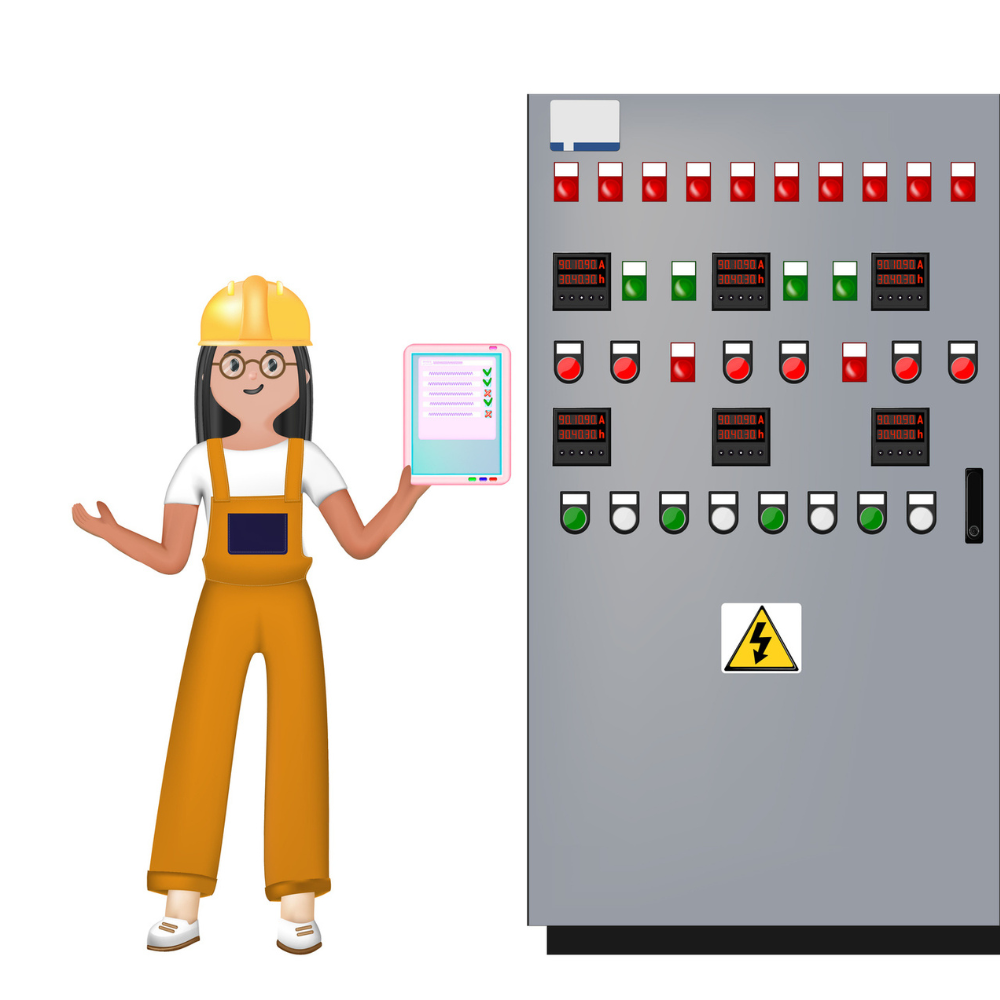
What Do DevOps Do? Exploring The Disconnect Between Employers And Professionals

The tech industry has made DevOps one of its most discussed professional roles. Employers hold different perceptions about DevOps professionals’ responsibilities than what these professionals actually do in their daily work. The gap between employer expectations and the actual duties of DevOps professionals causes recruitment problems, unmet job requirements, and team dissatisfaction.
Let’s examine the true meaning of DevOps and the reasons for this discrepancy.
What DevOps Professionals Actually Do
DevOps engineers take on multiple roles in their work. System administration and development skills do not fully define their role. They serve as a bridge between the development team and the operations team.
Their primary duty involves automating tasks that need to be repeated. They establish and maintain CI/CD pipelines to ensure they remain operational. The pipelines are designed to integrate code, run tests, and facilitate smooth deployment processes.
But that’s just the start. DevOps professionals also handle:
- Infrastructure management and provisioning
- Security implementation throughout the development cycle
- Monitoring and performance optimization
- Collaboration between development and operations teams
- Incident response and troubleshooting
The role has evolved considerably. Basic automation has transformed into complex platform engineering. DevOps professionals now oversee cloud environments, containerization, and microservices architectures.
The Employer Expectation Problem
Many employers still think DevOps is just about tools. They want someone who knows Jenkins, Docker, and Kubernetes. But they miss the bigger picture.
DevOps success relies on the combination of team collaboration, automated processes, transparent practices, and responsible accountability. It’s not just about technical skills. The process of transforming team collaboration serves as the core principle.
Employers create job descriptions that list more than twenty different tools. They often seek a “DevOps engineer” who has full technical capabilities. This sets unrealistic expectations because a person cannot master all the tools that make up the DevOps ecosystem.
The situation worsens when organizations fail to understand the core principles of DevOps culture. The organization keeps its siloed structure even after hiring DevOps engineers. The development and operations teams continue to work independently. The DevOps engineer acts more as a middleman rather than fostering connections between teams.
What Professionals Face In Reality
DevOps professionals face challenges that differ from those suggested by job descriptions. They spend time on:
Infrastructure firefighting: When systems break, they’re the first responders. This reactive work takes time away from strategic improvements.
Tool sprawl management: Companies often use multiple tools for similar tasks. DevOps engineers must integrate and maintain these complex toolchains.
Cultural resistance: Teams resist change. DevOps professionals must convince people to adopt new processes while managing technical implementations.
Skill gap pressure: Technology changes fast. According to DevOps.com, there’s a severe skills shortage in the market. DevOps professionals feel constant pressure to learn new technologies.
DevOps highlights three key themes: efficiency, speed, and security. But achieving these requires more than technical knowledge. It needs organizational support and cultural change.
The Skills Mismatch
Employers prioritize technical skills and look for expertise in specific tools and platforms. However, these are the most important skills for 2025:
- Cloud computing across multiple platforms
- Kubernetes and containerization
- CI/CD pipeline management
- Security integration (DevSecOps)
- Advanced monitoring and observability
Employers often fail to understand how these skills work together, leading to a disconnect. They view these requirements as separate elements rather than recognizing their interconnected nature.
Professionals understand that gaining expertise in a single area offers more value than learning many tools superficially. Job descriptions continue to ask for candidates to show expertise in all areas.
Communication And Collaboration Gaps
DevOps is a practice that relies on team collaboration. Organizations often fail to establish the right team structures that would lead to success.
Employers require DevOps engineers to address communication breakdowns between different teams. Organizations believe that choosing the right candidate will solve their existing organizational issues. The responsibility for transforming company culture falls disproportionately on individual employees.
DevOps professionals understand that leadership support is crucial for successful implementation. Executive backing is the key factor that determines the success of cultural transformation initiatives. These professionals devote their time to managing technical debt while also confronting organizational resistance.
Organizations achieve their best DevOps results through investments in personnel development and process improvement. Companies need to establish learning cultures and allocate time for skill development.
The Automation Expectation Vs Reality
Employers often believe DevOps requires full automation of all processes. Implementing automation projects demands that employers anticipate immediate results.
Professionals recognize that proper automation implementation takes time. Deploying poor automation systems causes more problems than manual operations. The goal is to balance speed with reliability.
The development of efficient automation systems relies on understanding current operational workflows. DevOps engineers spend considerable time analyzing existing processes before beginning automation implementation. The analysis phase often catches employers off guard because they expect immediate positive outcomes.
Security and compliance challenges
DevSecOps has become essential. Security remains the top IT investment priority for organizations.
Security integration into DevOps processes is what employers expect from their employees. Employers do not always provide the necessary resources and training. DevOps professionals need to learn security practices while continuing their current work responsibilities.
Implementing compliance requirements introduces additional operational challenges. Enforcing GDPR, HIPAA, and other regulations affects how systems are designed and maintained. DevOps engineers need both legal knowledge and technical skills to perform their jobs effectively.
The Cloud Complexity Factor
Cloud adoption has exploded. Research shows that 89% of organizations use multi-cloud strategies.
Employers think that cloud migration requires no special effort. DevOps engineers should migrate all systems to the cloud at a low cost, aligning with their expectations.
The real challenge of cloud complexity is understanding it. Each platform offers different services, pricing models, and limitations. Organizations using multiple cloud providers need staff who understand all aspects of each provider.
Cost optimization becomes a significant concern. Cloud scalability risks causing unexpected expenses. DevOps engineers must monitor usage patterns and continuously work to optimize their spending.
The Monitoring And Observability Challenge
Modern applications are complex. The implementation of microservices, containers, and distributed systems introduces new monitoring challenges.
The desire of employers to monitor their systems exists as an explicit requirement. The understanding of practical monitoring requirements remains unclear to many employers.
The 2024 Observability Report from Grafana demonstrates that organizations that implement centralized observability achieve both time and financial savings through their approach. The majority of teams operate with four or more observability tools, according to current statistics.
DevOps professionals need to combine various monitoring solutions for their work. DevOps professionals need to build useful dashboards and alerts, yet they must prevent alert fatigue from occurring.
The Continuous Learning Pressure
DevOps technology experiences rapid transformations in its development. New tools and practices emerge constantly.
Employers require DevOps engineers to maintain knowledge about all new developments. The organization fails to provide adequate time or resources for learning opportunities.
The pressure for professionals to learn continuously exists as they must deliver their daily work results. This situation leads to employee stress and potential burnout.
Organizations must allocate funds for training programs and set periods for employee skill development. The most successful organizations design structured learning programs.
Platform Engineering Emergence
Platform engineering reshapes how DevOps teams operate. Organizations build internal developer platforms to simplify complex toolchains.
The workplace transformation has become evident to employers. Many organizations still view DevOps engineers as separate entities rather than recognizing platform teams as the new standard.
Platform engineering represents the direction that professionals believe technology will take in the future. Through this approach, professionals can dedicate their time to important strategic work instead of performing repetitive tasks. Creating successful platforms requires substantial financial resources along with careful planning.
The Cultural Transformation Requirement
DevOps success requires cultural change. This goes beyond hiring the right people.
Employers often underestimate the organizational changes needed. They expect DevOps engineers to drive transformation without executive support.
Professionals know that culture change takes time. It requires consistent messaging, training, and reinforcement from leadership.
The most successful DevOps implementations happen when companies commit to changing how they work, not just what tools they use.
Bridging The Gap
The first step to achieving better DevOps implementations involves understanding these disconnects.
Employers should concentrate on desired results instead of focusing on particular tools. Describe your desired outcomes instead of specifying specific technologies. Do you need faster deployments? Better reliability? Improved security?
The professionals should communicate effectively about the actual nature of DevOps. Describe the necessary cultural and organizational changes that should accompany technical implementations.
Realistic expectations create advantages for both parties involved. DevOps transformation requires extended periods for completion. The process of achieving quick wins exists, but complete transformation demands continuous dedication.
Moving Forward Together
The DevOps skills gap will continue growing. The U.S. Department of Labor predicts that software engineers worldwide will face a shortage of 85.2 million professionals by 2030.
Organizations that develop their workforce will gain competitive market advantages. They should offer training programs, create learning environments, and support employee career growth.
DevOps professionals need to continually learn while also promoting organizational support for their professional growth. Engineers who achieve the highest value in their field possess both technical expertise and business savvy.
Employers need to collaborate with professionals to succeed. Both parties can work better together when they understand the true nature of DevOps.
Employers and DevOps professionals have a real mismatch in their understanding. But it’s not impossible to fix. The gap between them can be narrowed through open communication, realistic expectations, and shared investments in success.
DevOps goes beyond basic tools and automation features. Organizations must transform their software development and delivery processes through DevOps. The real benefits of DevOps become clear when all team members share this understanding.
Ready to strengthen your DevOps team? Hunter Recruiting specializes in matching companies with skilled DevOps professionals who understand both the technical and cultural aspects of successful implementations. Our experienced recruiters distinguish between tool knowledge and genuine DevOps expertise. Contact us today to find the right talent for your organization’s transformation journey.













